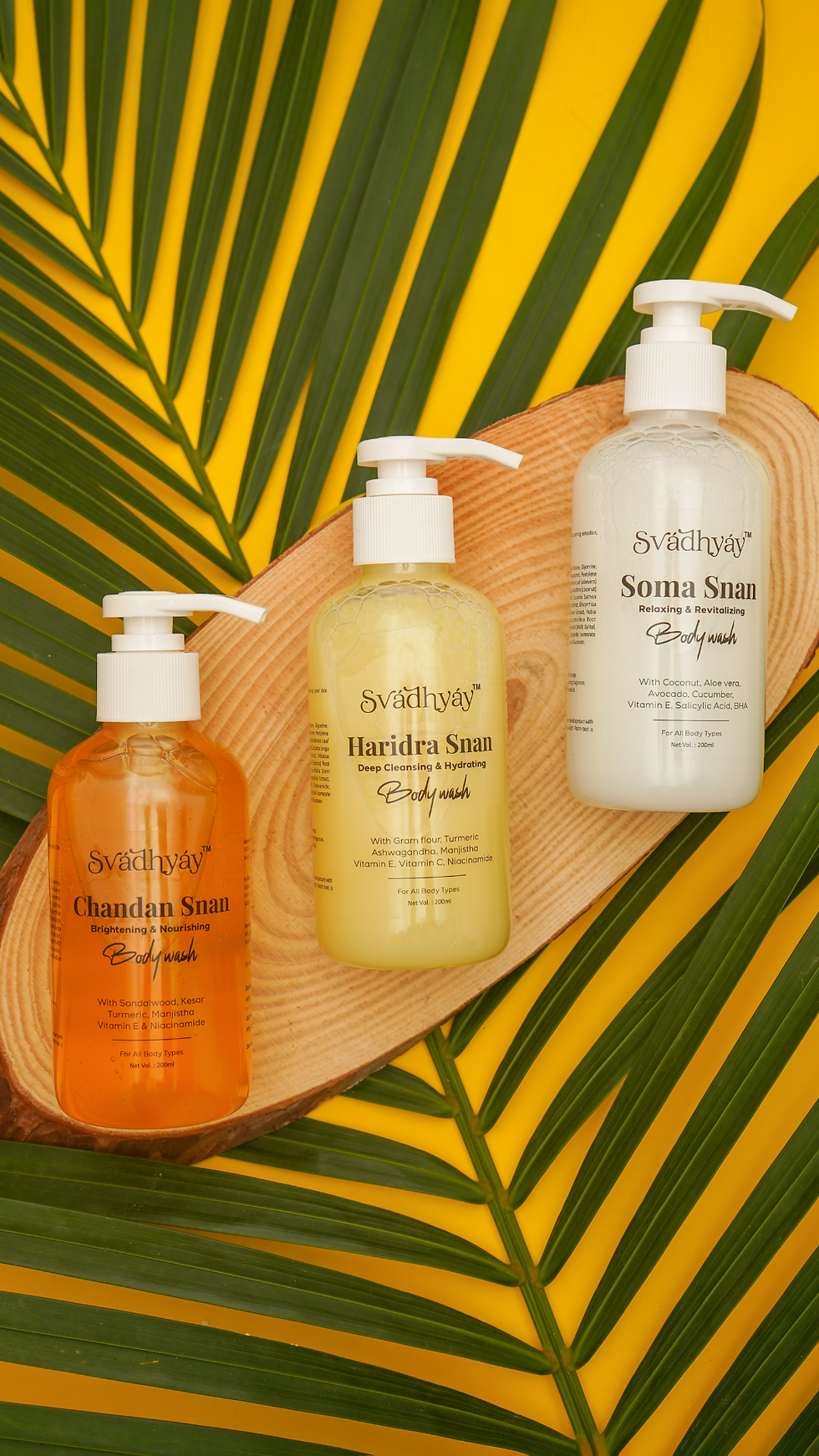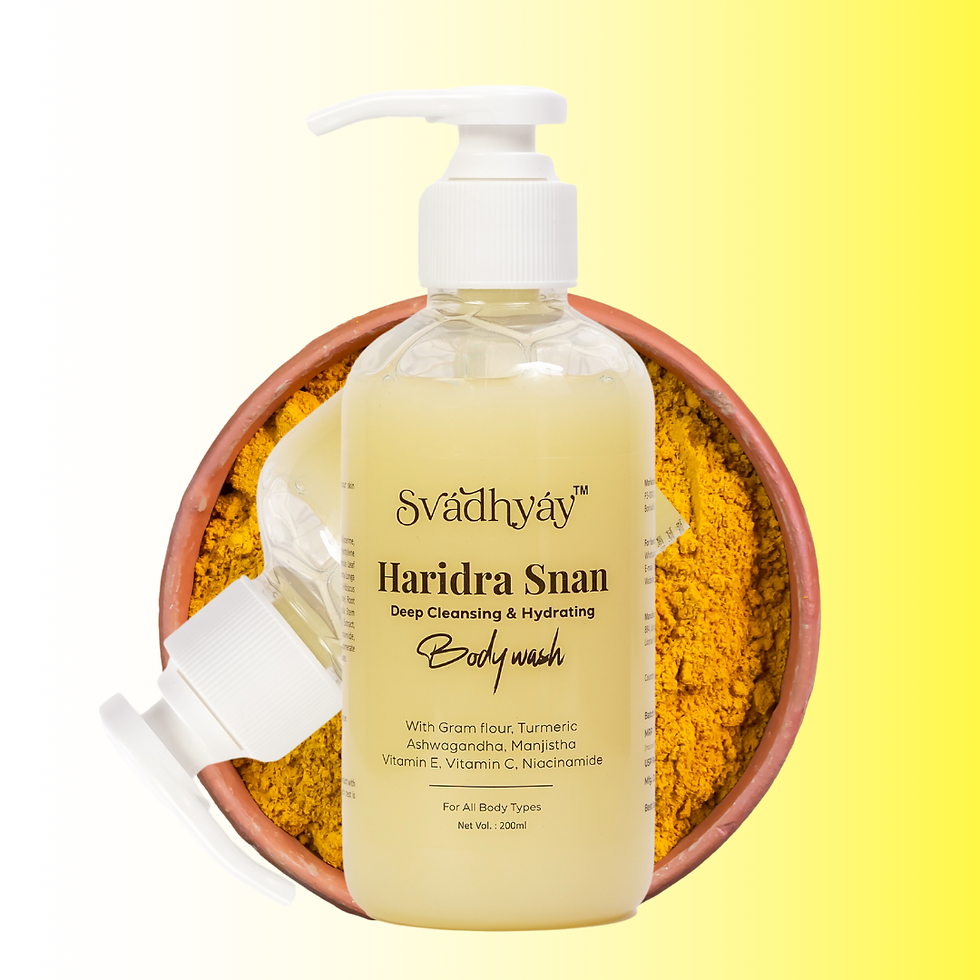Know My SKin
Understanding your skin is the first step to achieving a healthy, radiant glow. Dive into expert insights, skincare tips, and ingredient breakdowns to discover what truly works for your unique skin type.
.png)
01
How do I determine my skin type?
Your skin type is primarily categorized into five types:
-
Normal
-
Dry
-
Oily
-
Combination
-
Sensitive
A simple way to identify your skin type is the bare-skin test:
-
Wash your face with a mild cleanser and pat dry.
-
Leave your skin bare for 30 minutes without applying any products.
-
Observe how your skin feels:
-
If it feels tight, it’s likely dry.
-
If it appears shiny all over, it’s oily.
-
If only the T-zone (forehead, nose, chin) is shiny, it’s combination.
-
If it feels balanced and neither too oily nor dry, it’s normal.
-
If it’s easily irritated or reacts to products, it’s sensitive.
-
02
How do I identify my skin concerns?
Skin concerns go beyond just type and can include:
-
Acne & Breakouts – Often linked to excess oil, clogged pores, or hormonal imbalances.
-
Hyperpigmentation & Dark Spots – Caused by sun exposure, acne scars, or hormonal changes.
-
Dryness & Dehydration – A result of low moisture levels or a compromised skin barrier.
-
Sensitivity & Redness – Triggered by harsh products, environmental factors, or underlying conditions.
-
Aging Signs (Fine Lines, Wrinkles) – Develop due to collagen loss and external aggressors.
Knowing your primary skin concern helps you choose the right active ingredients and treatments.



03
What ingredients should I look for in skincare based on my skin type?
Nature has gifted us powerful ingredients that cater to different skin needs. Here’s how some of the best natural and essential skincare ingredients can benefit your skin:
-
Oily & Acne-Prone Skin – Look for Salicylic Acid, Niacinamide, Turmeric, Besan (Gram Flour), and Tea Tree Oil to control excess oil, fight acne, and brighten the skin. Turmeric has antibacterial properties that help reduce breakouts, while besan acts as a natural cleanser, removing dirt and excess sebum.
-
Dry & Dehydrated Skin – Hydrate your skin with Aloe Vera, Coconut Oil, Hyaluronic Acid, and Shea Butter. Aloe Vera deeply soothes and nourishes, while coconut oil is rich in fatty acids that provide deep hydration.
-
Sensitive Skin – Opt for Chandan (Sandalwood), Aloe Vera, Centella Asiatica, and Oat Extract to calm irritation and redness. Chandan is known for its cooling and anti-inflammatory properties, making it perfect for sensitive and irritated skin.
-
Combination Skin – Balance hydration and oil control with Niacinamide, Green Tea Extract, Jojoba Oil, and Turmeric. Turmeric helps even out skin tone, while jojoba oil mimics the skin’s natural oils, maintaining balance.
-
Aging Skin – Use Retinol, Peptides, Vitamin C, Bakuchiol, and Chandan (Sandalwood) to improve elasticity and fight fine lines. Sandalwood is revered for its skin-rejuvenating properties, making it an excellent anti-aging ingredient.
04
How can I build a basic bath routine based on my skin’s needs
Essential Bath Routine for Glowing Skin:
-
Choose the Right Body Wash – Instead of harsh soaps, opt for a nourishing body wash infused with natural ingredients like turmeric, besan, chandan (sandalwood), coconut, and aloe vera to cleanse and nourish your skin.
-
Body Exfoliation (2-3 Times a Week) – Exfoliate using a gentle scrub or an ubtan-based exfoliant with turmeric, besan, and sandalwood to remove dead skin cells and reveal a radiant glow.
-
Hydrating After-Bath Care – Apply a lightweight aloe vera or coconut-based body lotion to lock in moisture and keep your skin soft throughout the day.














